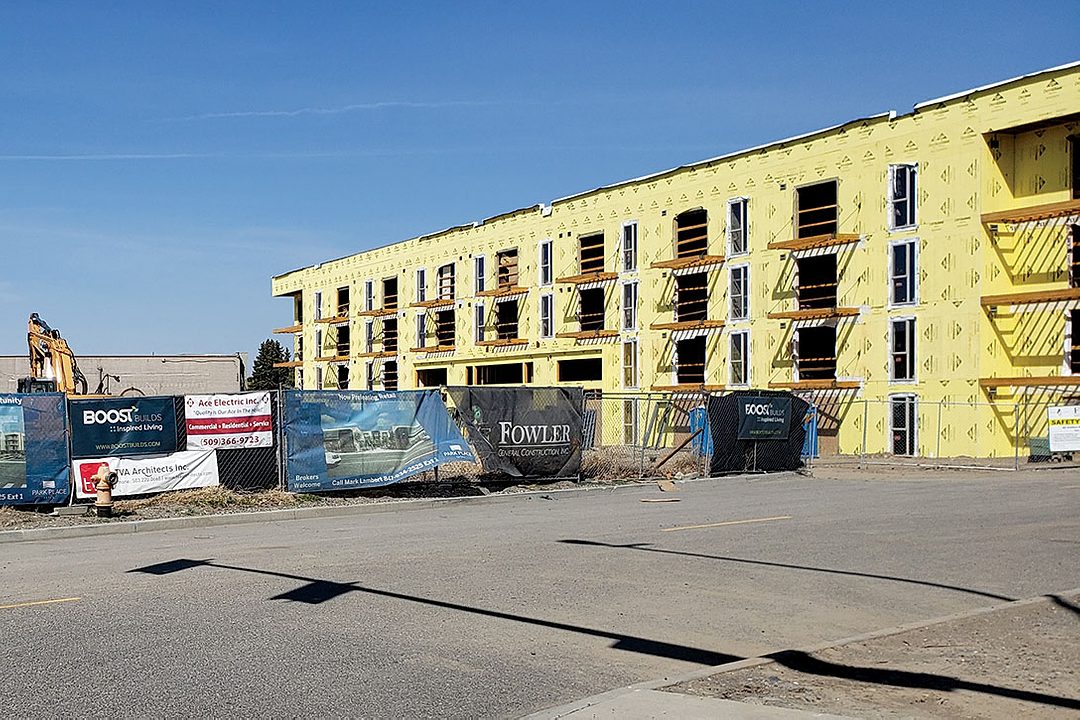
Home » Small business optimism alive and well in Tri-Cities
Small business optimism alive and well in Tri-Cities

April 15, 2020
In early April, American businesses raced to apply for $349 billion in forgivable loans through the CARES Act’s SBA Paycheck Protection Program.
The loans covered payroll costs, rent, benefits and more. Better still, they’re forgiven if businesses maintain employment through the coronavirus pandemic. Locally and nationwide, the numbers are staggering.
Washington state reports unemployment claims were seven times higher in early April than the worst moments of the Great Recession a decade ago. “Nonessential” businesses will remain closed, as a result of Gov. Jay Inslee’s Stay Home, Stay Healthy order intended to slow the spread of coronavirus, in effect through at least May 4, meaning the pain will get worse.
While there were reports of challenges in completing applications through Small Business Administration lenders, the program is wildly popular and was expected to quickly reach the limits. Treasury Secretary Steven Mnuchin pledged to pursue an additional $250 billion within days.
It’s a dizzying time for small businesses.
The Tri-Cities Area Journal of Business reached out to local entrepreneurs to see how they’re faring.
We surveyed owners of businesses recently profiled in the Journal of Business. Their answers are inspiring, funny, creative and most of all reveal a collective determination to survive and to do good while times are bad.
Here’s what they had to say:
David Lippes, Boost Builds
The Tri-City investor owns or operates about two dozen businesses, including Boost Builds. The community-building development firm is constructing Park Place, a high-profile apartment and retail complex at the former pit at 650 George Washington Way.
“I have businesses that are benefiting from what’s going on, unfortunately, and businesses that have shut down,” he said.
As of early April, he intended to reopen all the businesses that are closed. He declined to describe how individual businesses are operating, saying he didn’t want to reveal private investment information.
Most of his businesses have applied for SBA funds, including disaster relief and the Paycheck Protection Program.
He has mixed feelings about the financial rescue. He wants a sharper federal focus on the underlying crisis.
“We are in a health care crisis. We are getting federal financial relief. We are not getting coordinated federal action to address the underlying crisis, which is why we need help,” he said.
“The longer we have a health care crisis, the longer we have an economic crisis,” he said, adding, “If our president is as he has self-proclaimed, a war-time president, in times of war, if another country was attacking us, I would hope the president wouldn’t tell states and communities to defend themselves.”
Steve Lee, Green2Go
Kennewick Mayor Pro Tem Steve Lee and his wife, Jessica, own the Green2Go cannabis shops in Finley and Tokio, as well as several affiliated businesses.
The couple are hunkered down at home waiting for the arrival of their first child, a girl they plan to name Zuzu Eleanor, in late April. They’ve been quarantining for weeks and plan to stay isolated for the foreseeable future.
Retail cannabis is an essential business under the stay-home order, but new rules have transformed the way Green2Go operates, Lee said.
“For me and my wife, this is a chance to lead with our values,” he said. “How can we participate in ethical capitalism during a pandemic?”
Green2Go adopted social distancing early and created a new position of social distancing coordinator to police the six-foot distancing requirements. It shut down half the registers and ordered sneeze guards to protect employees twice —the first batch was defective.
With masks impossible to find, it hired a local seamstress to make hundreds of face masks for employees, or budtenders.
Too, the new rules allow curbside delivery, allowing customers to drive up and buy at the curb.
It takes 2.5 fulltime employees to staff the curb posts. All need to be outfitted with body cameras to meet traceability requirements and need safety vests, personal protective equipment and handheld devices such as iPads.
Lee said finding electronics is harder than protective masks and gloves.
“In a world where we’re all used to Amazon Priming it in a couple of days, we’re now out five or six days,” he said.
Looking ahead, the Lees will measure their success by employee turnover and if employees have to leave because they became ill.
He said he’ll be happy to emerge from the pandemic in a budget neutral position as long as people are protected.
“The 2020 budget will always have an asterisk,” he said.
Melissa Porcaro, CAN Do Kids Occupational Therapy
The Richland clinic, which helps children with behavioral and physical challenges, has converted to a telehealth model.
“We’re doing therapy session via Zoom with clients,” she said, adding she uses a secured edition for patient privacy.
The shift has its benefits.
She was uncomfortable interacting with children online at first, but is finding that her young patients are incorporating their own toys and home settings into their therapy sessions. Parents are better able to see how their own yards, living rooms, kitchens and stairs can play a role in helping children with behavioral and other challenges.
“It’s working better than I expected,” she said.
On the downside, she’s unable to treat patients who live in Oregon because she doesn’t have a business license there. The state hasn’t responded to her inquiries.
One of Porcaro’s prime missions is to keep kids moving and reduce the amount of time patients spend with screens. With that in mind, she and her children chalked an obstacle course on the pavement at the entrance to The Park at the Lakes in West Richland.
As for the business, she’s pared down to a skeleton staff. Looking ahead, she’s worried about the future in two to six months as school closures persist until at least the fall.
She didn’t intend to apply for the SBA-backed PPP program.
“I think we can still make it without it, just not in the same capacity we have in the past,” she said.
Hilary Kelsay, Humming Hemp
The Richland-based company sells raw hemp hearts and its Humming Hemp bars in groceries around the country.
“For us, it’s kind of business as usual,” said CEO Kelsay, who notes grocery stores remain open.
However, with promotional activities that drive sales on hold, Humming Hemp is tightening its belt.
“We’re hunkering down. Cash is king,” she said. The business is supported by private capital. With investors sidelined during the pandemic, she said she’s relying on her current supporters to help keep the company going.
Prior to the pandemic, sales of the new hemp bars were growing well, she said.
Kelsay isn’t just focused on keeping the company going during the pandemic. She’s explored ways for Humming Hemp to make a difference. She decided to ship product to support health care workers In New York City, at the center of the pandemic.
“What they need is food for health care workers on long shifts with no breaks. They need nutrition,” she said.
Excited at the idea of supporting frontline workers, she reached out to FedEx.
In early April, she shipped Humming Hemp bars from her Portland warehouse to 17 acute care facilities in New York.
“That’s our whole mission. We want to keep you humming along,” she said. “We’re going to be able to weather the storm.”
Local News
KEYWORDS april 2020





